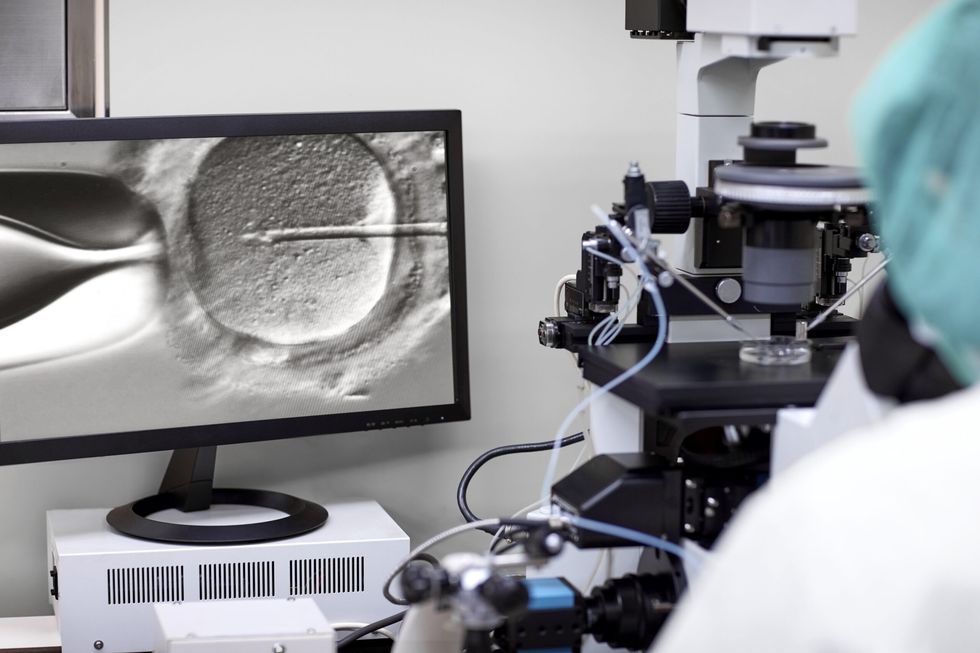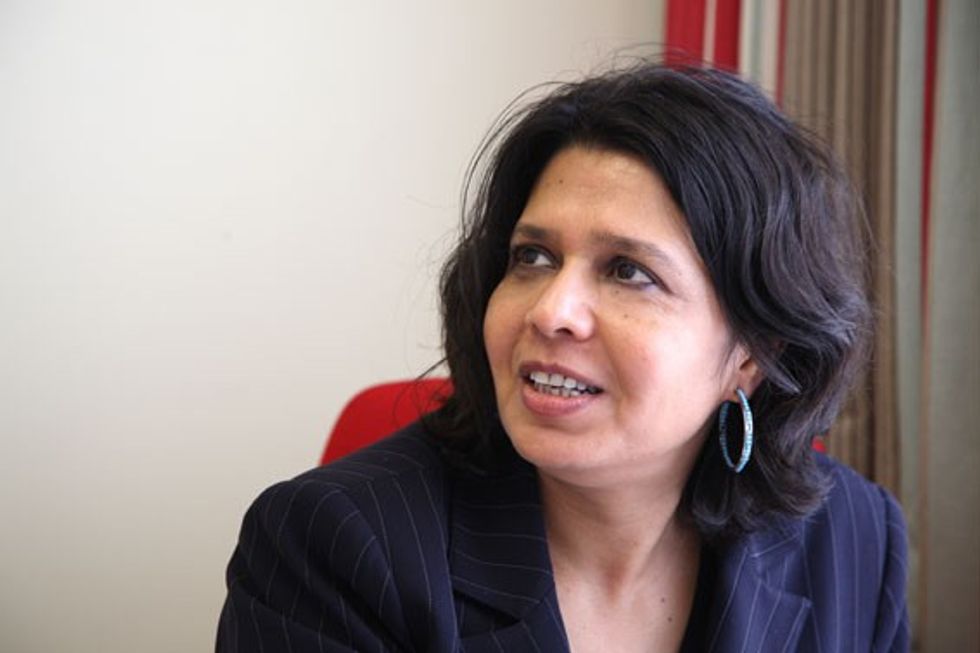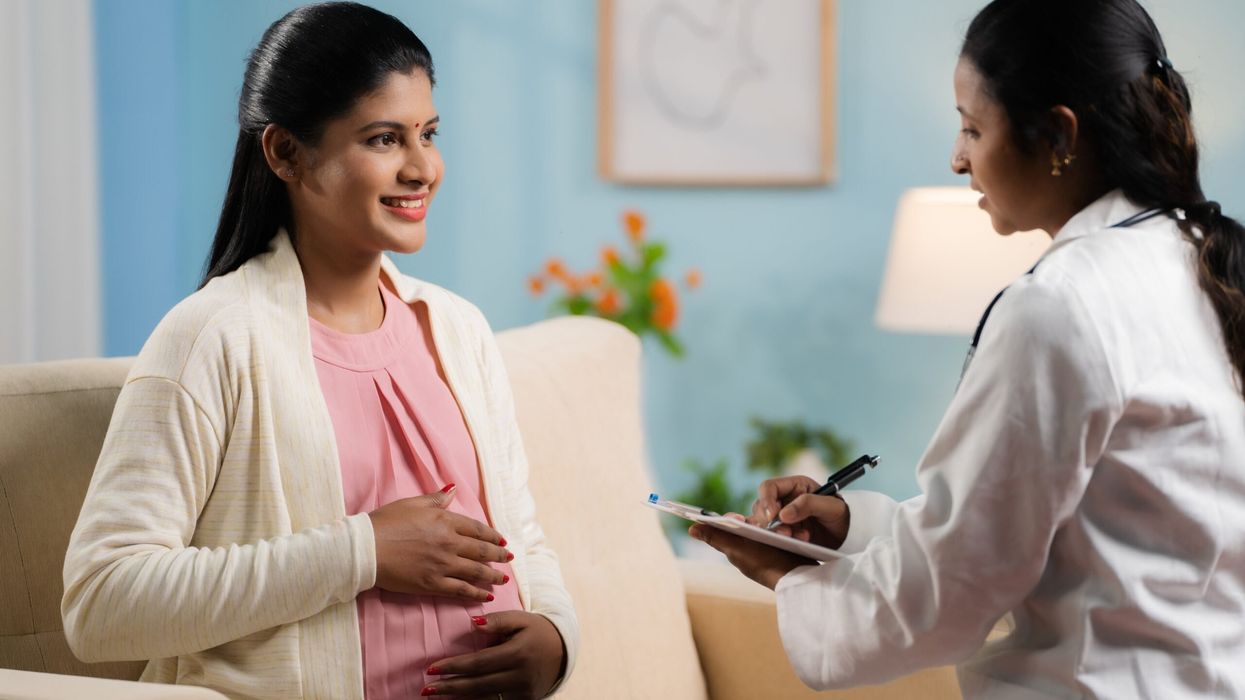A LEADING fertility doctor has urged more British Asians to sign-up as sperm and egg donors after a recent report found the birth rates after IVF (vitro fertilisation) were lower among black and Asian patients than their white counterparts.
Research found that while the average IVF birth rate per embryo transferred has increased across all groups, black and Asian patients aged 18-37 had the lowest birth rates (23 per cent and 24 per cent respectively) compared to white patients (32 per cent) in 2020-2021.
Data comes from the Human Fertilisation and Embryology Authority (HFEA) pointed to reasons why Asian women were less likely to be successful with IVF, including barriers such as stigma and NHS waiting times.
“Additionally, some patients may require donor sperm or donor eggs for their fertility treatment – however, there is currently a shortage of Asian sperm and egg donors,” said professor Geeta Nargund, a member of the HFEA.

“Most of our patients believe it is important that the ethnicity of a donor matched their own, so the shortage can mean that many Asian patients are facing further delays to starting their treatment.”
Egg, sperm and embryo donation now accounts for one in 170 of all births and one in six IVF births.
Asian egg and black sperm donors were under-represented by 50 per cent compared with the rest of the population.
“We believe this is because of cultural differences in the black and Asian communities, where infertility is still considered a taboo subject,” said Dr Venkat, medical director of Harley Street Fertility Clinic.
“The best way to recruit donors from those communities is by educating everyone on the importance of their donation, and the difference it will make within their community.”
An earlier HFEA report found that the lack of diversity means mixed-heritage and black sperm has to come from abroad.
The report showed that donor eggs used in this period were mostly from the UK, but higher proportions of Asian, black and other ethnicities were imported, than for white or mixed ethnicity donors.
Over half of sperm used in treatment from donors of mixed, other and black backgrounds in 2017-21 was imported from abroad.
When it came to Asian donors, 38 per cent come from abroad, while almost three quarters of mixed ethnicity donors were also not from the UK.
Julia Chain, who chairs the HFEA, said she was “concerned” about people having to import sperm because using “online donors can be extremely risky”.
Chain said she hoped for more sperm and egg donations to come from ethnic minority communities.
“Donating eggs or sperm has helped overcome heartache for thousands of people who might not be able to conceive a child,” Chain said.
“Over time, fertility preservation and treatment techniques have dramatically improved and this, along with changing social attitudes, has led to the birth of over 70,000 donor-conceived children since 1991.”

The report found that more Asian patients are undergoing IVF (15 per cent) in 2021 compared to the UK population estimate (11 per cent).
Asian patients also account for the youngest ethnic group starting treatment with Bangladeshi and Pakistani patients at an average age of 33.4 years.
Nargund believes that while there are positive signs, there still remains stigma in Asian communities around infertility, which is hampering progress.
“Historically, black, Asian and ethnic minority patients do experience stigma when receiving fertility treatment and I often hear from Asian patients and Asian patient support groups about this issue,” she said.
“Many of these patients feel isolated and are unable to share their experiences of treatment with their close friends and family.
“Fertility treatment is often a highly emotional time for patients whether or not it is successful, so it’s unfortunate there’s still stigma within the Asian community.”
Nargund called on the NHS to build better links with Asian communities and remove the barriers and stigma around fertility treatment.
“Raising awareness of the disparities that still exist is essential. There’s a common yet outdated view in the community that infertility is a woman’s issue, which is false because around half of all cases of infertility are due to a male factor,” she said.
“By raising awareness through education via community networks and patient support groups, it will be easier for those who have fertility issues to openly discuss their experiences and to give them the support they need when they’re on their fertility journeys.

“ W o r k i n g collaboratively with all Asian communities, we can help improve education, access and outcomes of fertility treatment. I have previously been involved in running educational sessions among community groups and know firsthand this is something that can be achieved.”
Nargund added that there are a number of pre-existing medical conditions known to affect fertility, with some being more common in Asian women.
“One pre-existing medical condition Asian women can be more prone to is polycystic ovarian syndrome (PCOS). Women with pre-existing conditions could face delays when seeking treatment due to NHS waiting lists, which in turn delays their referral for fertility treatment,” said Nargund.
“NHS waiting lists need to be reduced. No patient should be left behind when they express concerns about their reproductive health, whether it relates to initial diagnosis or treatment of a pre-existing medical condition.”
Along with long waiting lists, funding NHS-funded IVF cycles for fertility treatment has also decreased across all ethnic groups.
Funding among black patients went down from 60 per cent in 2019 to 41 per cent in 2021. Patients of other ethnic backgrounds were more likely to receive NHS-funded treatment (63 per cent), followed by patients of white (53 per cent), Asian (49 per cent) and mixed (47 per cent) backgrounds.
“There is no room for the health inequalities that exist within fertility treatment,” said Nargund.




